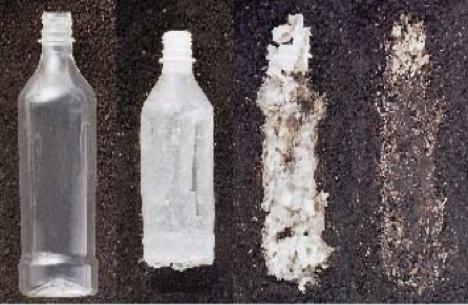Biodegradable Plastics
Many, but not all, of the biobased plastics, and some that are fossil-derived, are also susceptible to degradation under normal biologic conditions, both in the body and in the environment. There is considerable debate about the meaning of this biodegradation. How quickly must it take place (we could all agree that some level of degradation would take place eventually, if one waited long enough)? What byproducts of the degradation constitute true biodegradation? The articles below address these questions and more.
Scientists make plastic from sugar and carbon dioxide
University of Bath, 2017
Summary: This article published by the University of Bath summarizes how plastics can be produced by using sugar and carbon dioxide. This material is both cheaper and safer to use compared to conventional fossil-fuel derived plastics.
Stanford Scientists Make Renewable Plastic from Carbon Dioxide and Plants
Stanford News, 9 March 2016
Summary: This article published by Stanford University describes how researchers have developed a method of making bio-based plastic from carbon dioxide and inedible plant material. This new material would significantly reduce the carbon footprint of plastics and provide an alternative to petroleum-derived plastics.
The Debate over the Biodegradable Terminology
The Guardian 31 October 2014
